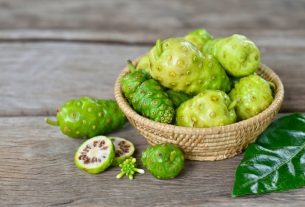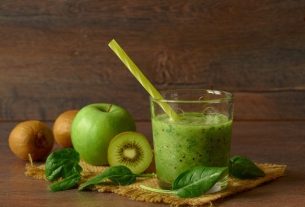Home remedies for depression, such as St. John’s wort tea, oat infusion or banana smoothie with nuts, contain substances with natural antidepressant properties, which help the functioning of the nervous system, making them good natural options to help combat depression.
Depression is characterized by symptoms such as a feeling of emptiness or sadness, lack of energy, or lack of desire to do daily tasks, and is caused by a combination of genetic, environmental, biological and psychological factors, such as trauma, family history of depression or imbalances. chemicals in the brain, for example. See the main causes and symptoms of depression.
Home remedies for depression can be used to complement medical treatment and help combat mild to moderate depression. However, they do not replace treatment with medication or psychotherapy recommended by a doctor, and some are not recommended for pregnant or breastfeeding women or people using medication. Therefore, they should only be used under medical or herbalist advice.

Some home remedy options for depression are:
1. St. John’s wort tea
Hypericum, also known as St. John’s wort, is a medicinal plant of the species Hypericum perforatumrich in hypericin, hyperforin and flavonoids, with a natural antidepressant effect, which can help alleviate symptoms of mild to moderate depression, such as mood changes, anxiety or nervous agitation, for example.
Furthermore, some studies (1,2) have demonstrated that St. John’s wort has an action similar to antidepressants, which are one of the main types of medicine used in the medical treatment of depression, and its use is particularly indicated when classic antidepressant medicines are poorly tolerated.
St. John’s wort tea can also help treat postmenopausal depression, improving sleep quality and alertness during the day. See other natural remedies for menopause.
Ingredients
- 1 teaspoon (2 to 3 grams) of St. John’s wort leaves and flowers;
- 250 mL of water.
Preparation mode
Boil the water and put it in a cup with the St. John’s wort. Cover and let rest for about 10 minutes. Then strain, let it cool, and drink 3 to 4 cups a day.
St. John’s wort tea should not be used by children, pregnant or lactating women or those using contraceptives, as St. John’s wort can reduce the effectiveness of hormonal contraceptives.
In addition, St. John’s wort also affects the functioning of various medications, such as antidepressants, antipsychotics, antiepileptics, anxiolytics, digoxin, cyclosporine, antiretrovirals, warfarin or some medicines for the treatment of cancer, for example.
Therefore, St. John’s wort should only be used by those who do not take any type of medication or under the guidance of a doctor.
2. Banana smoothie with nuts
The banana smoothie with nuts is an excellent way to naturally treat milder cases of depression, because both bananas and nuts contain tryptophan, an amino acid that participates in the formation of hormones, such as serotonin, which improve mood and help relax, promoting a good mood, and helping to reduce feelings of sadness and depression.
Ingredients
- 1 glass of natural yogurt;
- 1 ripe banana;
- 1 handful of walnuts;
- 1 dessert spoon of honey.
Preparation mode
Blend the yogurt and banana in a blender and then add the chopped nuts and honey, mixing gently. Take this vitamin for breakfast daily, and for a better effect, complete the treatment using green banana biomass every day.
If you don’t know how to make green banana biomass to fight depression naturally, see everything here in this article.
3. Saffron tea
Saffron, with its scientific name Crocus sativusis a medicinal plant that has been shown to have an effect on depression, stabilizing mood and combating excess anxiety, due to a substance present in its composition, safranal.
Ingredients
- 1 teaspoon of saffron;
- 500 mL of water;
- 1 lemon.
Preparation mode
Add the saffron to the water and then squeeze the lemon juice into the mixture. Finally, bring to the boil, let it boil for about 5 minutes, strain and drink the mixture twice a day.
Furthermore, it is also possible to take supplements with saffron in capsule form, with the recommended dose per day being approximately 30 grams. Another option is to add saffron regularly to your food, like rice, for example. See how to make a delicious saffron rice recipe.
Although it has promising results, there are still few studies on the use of saffron to treat depression in humans. Furthermore, it is known that very high doses of this plant can be toxic to the body, so you should avoid using saffron in excess or taking more than 60 mg of this supplement per day.
4. Grape juice concentrate
Concentrated grape juice is another way to combat depression and anxiety naturally, being useful for calming your nerves and feeling better because the resveratrol present in the fruit improves blood circulation and brain oxygenation.
Furthermore, resveratrol also appears to regulate natural levels of serotonin, which is mainly responsible for the feeling of well-being.
Ingredients
- 60 mL of concentrated grape juice;
- 500 mL of water.
Preparation mode
Mix the ingredients and drink 1 glass regularly, before bed. Although it is possible to make grape juice using fresh fruit, the concentration of resveratrol is higher in concentrated juice and therefore this is the most suitable for treatment. However, grape refreshment that can be found in powder form in supermarkets does not have the same effect.
According to some studies, the bioavailability of resveratrol appears to be greater when associated with piperine, the main compound in pepper. Thus, you can try adding a small amount of black pepper to this juice, for example, to increase the effect of resveratrol against depression.
5. Damiana tea
Damiana, known scientifically as Tour diffuseis an adaptogenic plant that helps reduce the symptoms of depression, as its leaves contain active substances capable of relieving the physical and mental symptoms of stress, as well as improving sleep and overall psychological well-being.
Ingredients
- 2 tablespoons of chopped damiana leaves;
- 500 mL of water.
Preparation mode
Combine the ingredients in a pan and let it boil for about 15 minutes. Then strain and drink 2 cups a day, for at least 30 days.
This plant has not yet been fully studied and, therefore, its use should not exceed its recommended use. Furthermore, it should be avoided by pregnant women and diabetics, as it can cause deregulation of blood sugar levels.
6. Valerian Root Tea
Valerian is a widely used medicinal plant that helps regulate sleep, allowing the brain to enter a cycle of activity and rest that helps reduce day-to-day stress and anxiety.
Therefore, this tea is perfect to complement the effects of other home remedies, especially for people with sleep problems.
Ingredients
Preparation mode
Add the valerian root to a pan with water and let it boil for approximately 15 minutes. After turning off the heat, cover the pan and let the tea steep for another 15 minutes. Strain and drink 1 cup 30 minutes to 1 hour before bed.
7. Oat Infusion
Oat infusion, prepared with the medicinal plant Avena sativa, is rich in vitamin B5 and alkaloids, which help fight depression, as well as reduce stress and tiredness, and calm down.
Ingredients
- 3 g of dry oat plant;
- 250 mL of water.
Preparation mode
Boil the water and add it to a cup containing dry oats. Let it rest for 5 minutes and strain. Then wait for it to cool and drink 3 to 4 cups a day.
Oat infusion should not be used by people who have gluten intolerance.

Sign up for our newsletter and stay up to date with exclusive news
that can transform your routine!
Warning: Undefined array key "title" in /home/storelat/public_html/wp-content/plugins/link-whisper-premium/templates/frontend/related-posts.php on line 12
Warning: Undefined array key "title_tag" in /home/storelat/public_html/wp-content/plugins/link-whisper-premium/templates/frontend/related-posts.php on line 13



